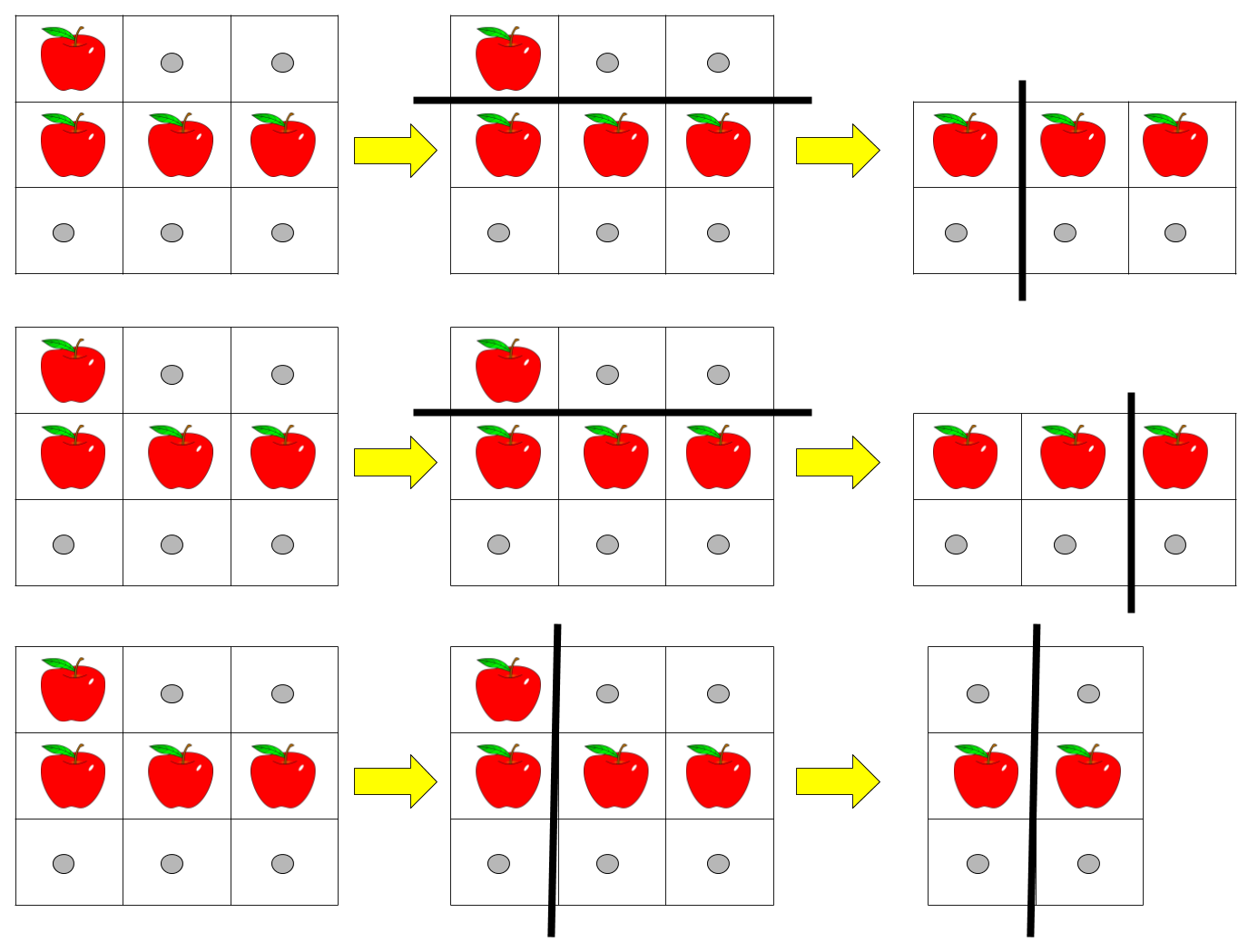LeetCode in Kotlin
1444. Number of Ways of Cutting a Pizza
Hard
Given a rectangular pizza represented as a rows x cols matrix containing the following characters: 'A' (an apple) and '.' (empty cell) and given the integer k. You have to cut the pizza into k pieces using k-1 cuts.
For each cut you choose the direction: vertical or horizontal, then you choose a cut position at the cell boundary and cut the pizza into two pieces. If you cut the pizza vertically, give the left part of the pizza to a person. If you cut the pizza horizontally, give the upper part of the pizza to a person. Give the last piece of pizza to the last person.
_Return the number of ways of cutting the pizza such that each piece contains at least one apple. _Since the answer can be a huge number, return this modulo 10^9 + 7.
Example 1:

Input: pizza = [“A..”,”AAA”,”…”], k = 3
Output: 3
Explanation: The figure above shows the three ways to cut the pizza. Note that pieces must contain at least one apple.
Example 2:
Input: pizza = [“A..”,”AA.”,”…”], k = 3
Output: 1
Example 3:
Input: pizza = [“A..”,”A..”,”…”], k = 1
Output: 1
Constraints:
1 <= rows, cols <= 50rows == pizza.lengthcols == pizza[i].length1 <= k <= 10pizzaconsists of characters'A'and'.'only.
Solution
class Solution {
fun ways(pizza: Array<String>, k: Int): Int {
if (pizza.isEmpty()) {
return 0
}
val m = pizza.size
val n = pizza[0].length
val prefix = Array(m + 1) { IntArray(n + 1) }
for (i in 0 until m) {
for (j in 0 until n) {
prefix[i + 1][j + 1] = (
(
prefix[i][j + 1] +
prefix[i + 1][j] +
if (pizza[i][j] == 'A') 1 else 0
) -
prefix[i][j]
)
}
}
val dp = Array(m) { Array(n) { IntArray(k) } }
for (i in 0 until m) {
for (j in 0 until n) {
for (s in 0 until k) {
dp[i][j][s] = -1
}
}
}
return dfs(0, 0, m, n, k - 1, prefix, dp)
}
private fun dfs(
m: Int,
n: Int,
temp1: Int,
temp2: Int,
k: Int,
prefix: Array<IntArray>,
dp: Array<Array<IntArray>>,
): Int {
if (k == 0) {
return if (hasApple(prefix, m, n, temp1 - 1, temp2 - 1)) 1 else 0
}
if (dp[m][n][k] != -1) {
return dp[m][n][k]
}
var local = 0
for (x in m until temp1 - 1) {
local = (
(
local +
(if (hasApple(prefix, m, n, x, temp2 - 1)) 1 else 0) *
dfs(x + 1, n, temp1, temp2, k - 1, prefix, dp)
) %
K_MOD
)
}
for (y in n until temp2 - 1) {
local = (
(
local +
(if (hasApple(prefix, m, n, temp1 - 1, y)) 1 else 0) *
dfs(m, y + 1, temp1, temp2, k - 1, prefix, dp)
) %
K_MOD
)
}
dp[m][n][k] = local
return dp[m][n][k]
}
private fun hasApple(prefix: Array<IntArray>, x1: Int, y1: Int, x2: Int, y2: Int): Boolean {
return (
prefix[x2 + 1][y2 + 1] - prefix[x1][y2 + 1] - prefix[x2 + 1][y1] + prefix[x1][y1]
> 0
)
}
companion object {
private const val K_MOD = (1e9 + 7).toInt()
}
}

